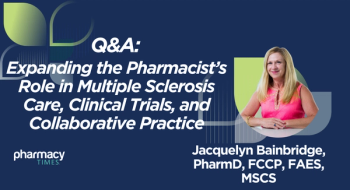
- March 2020
- Volume 88
- Issue 3
CDC Makes Recommendations for Preserving Brain Health
Few drugs are available to address cognitive decline, but dietary changes, mental and physical activity, and social engagement can all help.
With Americans’ increasing life expectancy, the CDC has established a public health initiative to maintain cognitive health, which is necessary for both healthy aging and quality of life.1 Of course, the brain is essential, directing and organizing critical thinking and execution of plans, among other things. The CDC defines cognition as a “combination of mental processes that includes the ability to learn new things, intuition, judgment, language, and remembering.”1 When any of these processes diminish, patients develop cognitive impairment.
The CDC estimates that more than 16 million adults 18 years and older live with cognitive impairment.2 Risk factors include aging, chronic health conditions, education level, family history, head injury, and physical inactivity.2 But cognitive impairment is not an inevitable part of aging. In fact, investigators have determined healthy lifestyle behaviors that may decrease the likelihood of suffering cognitive impairment later in life (see table 1.)2-5,7
HIGH BLOOD PRESSURE
Multiple studies have evaluated the connection between cognitive impairment and high blood pressure (HBP), as hypertension is a risk factor for dementia. A recent study included 499 dementia-free individuals who had HBP and were being treated with antihypertensive medications in midlife adulthood. The results showed significant increases in white matter hyperintensity volume, which is associated with cognitive decline, and smaller brain volumes in patients aged 69 to 71 years.5 Investigators frequently observe white matter hyperintensities on brain magnetic resonance imaging scans of patients older than 60 years. These hyperintensities are associated with an increased likelihood of cognitive impairment and dementia.6 To minimize confounding effects within the study, the study protocol included only patients of the same age and geographic locations. The investigators also evaluated patients’ blood pressures prospectively, at ages 36, 43, 53, 60 to 64, and 69, to include data from early adulthood, midlife, and early late-life adulthood.5 They concluded that a strong association exists between midlife blood pressure and late-life cerebral small vessel disease and cognitive impairment later in life.5
BENEFITS OF PHYSICAL ACTIVITY
Physical activities with reported benefits include aerobic exercise/ endurance, balance training, resistance training, balance, and tai chi.3,4 Investigators suggest that physical activity enhances blood flow and neuronal connectivity, increases brain volume, and reduces chronic disease risk.3 They have also concluded that physical activity is associated with improvements in attention and processing speed, executive function, and memory.4
RECOGNIZING THE SIGNS
Cognitive impairment ranges from mild cognitive impairment (MCI) to dementia.1 Individuals’ locations along this spectrum determine their ability to complete normal activities of daily living and to care for themselves.1 Individual presentations of cognitive impairment differ, but table 2 lists common signs.2 Overall, this impairment affects the ability to live a normal life. As a result, determining a better treatment or preventing cognitive impairment is paramount to improving the lives of the affected aging population.
TREATMENTS
The FDA has not approved any drugs or other treatments for MCI, but the agency has approved drugs to treat Alzheimer disease, known as acetylcholinesterase inhibitors (eg, donepezil, galantamine, and rivastigmine), and an N-methyl-D-aspartate glutamate receptor antagonist (memantine).7 Both classes aim to improve cognitive performance, increase quality of life, and slow memory loss in Alzheimer disease.7 Common adverse effects that patients may experience with acetylcholinesterase inhibitors include diarrhea, nausea, and vomiting. When these adverse effects are intolerable, prescribers recommend memantine.
CONCLUSION
With more Americans living longer lives, cognitive impairment has become a growing health concern. Individuals can combat this decline by being mentally and physically active, making dietary changes, and remaining socially engaged.
Monique F. Miller is a PharmD candidate at the University of Connecticut in Storrs.
REFERENCES
- Healthy brain initiative. CDC website. cdc.gov/aging/healthybrain/index.htm. Updated August 29, 2019. Accessed February 16, 2020.
- Promoting brain health: be a champion! make a difference today! CDC website. cdc.gov/aging/pdf/cognitive_impairment/cogImp_genAud_final.pdf. Updated February 2011. Accessed February 18, 2020.
- Compton MT. Clinical Manual of Prevention in Mental Health. 1st ed. Washington, DC: American Psychiatric Association Publishing; 2010.
- Brodziak A, Wolińska A, Kołat E, Różyk-Myrta A. Guidelines for prevention and treatment of cognitive impairment in the elderly. Med Sci Monit. 2015;21:585-597. doi: 10.12659/MSM.892542.
- Lane CA, Barnes J, Nicholas JM, et al. Associations between blood pressure across adulthood and late-life brain structure and pathology in the neuroscience substudy of the 1946 British birth cohort (Insight 46): an epidemiological study. Lancet Neurol. 2019;18(10):942-952. doi: 10.1016/S1474-4422(19)30228-5.
- Alber J, Alladi S, Bae HJ, et al. White matter hyperintensities in vascular contributions to cognitive impairment and dementia (VCID): knowledge gaps and opportunities. Alzheimers Dement (N Y). 2019;5:107-117. doi: 10.1016/j.trci.2019.02.001.
- Andrade C, Radhakrishnan R. The prevention and treatment of cognitive decline and dementia: an overview of recent research on experimental treatments. Indian J Psychiatry. 2009;51(1):12-25. doi:10.4103/0019-5545.44900
Articles in this issue
almost 6 years ago
Sleep Apnea Increases Mortality Risk in Patients with Advanced CKD, ESRDalmost 6 years ago
Interactives: Case Studies (March 2020)almost 6 years ago
Medication Therapy Management Can Boost Adherencealmost 6 years ago
Become Familiar With the False Claim Actalmost 6 years ago
Italian Study Finds Cost of Migraine Treatment Higher for Women, Elderlyalmost 6 years ago
Considerations of Claritin-D® for Nasal Allergy Symptom Reliefalmost 6 years ago
Hyperkalemia: Navigating Inpatient Care and Preventing Recurrencealmost 6 years ago
Standard Insulin Pen Needles Require CautionNewsletter
Stay informed on drug updates, treatment guidelines, and pharmacy practice trends—subscribe to Pharmacy Times for weekly clinical insights.


























